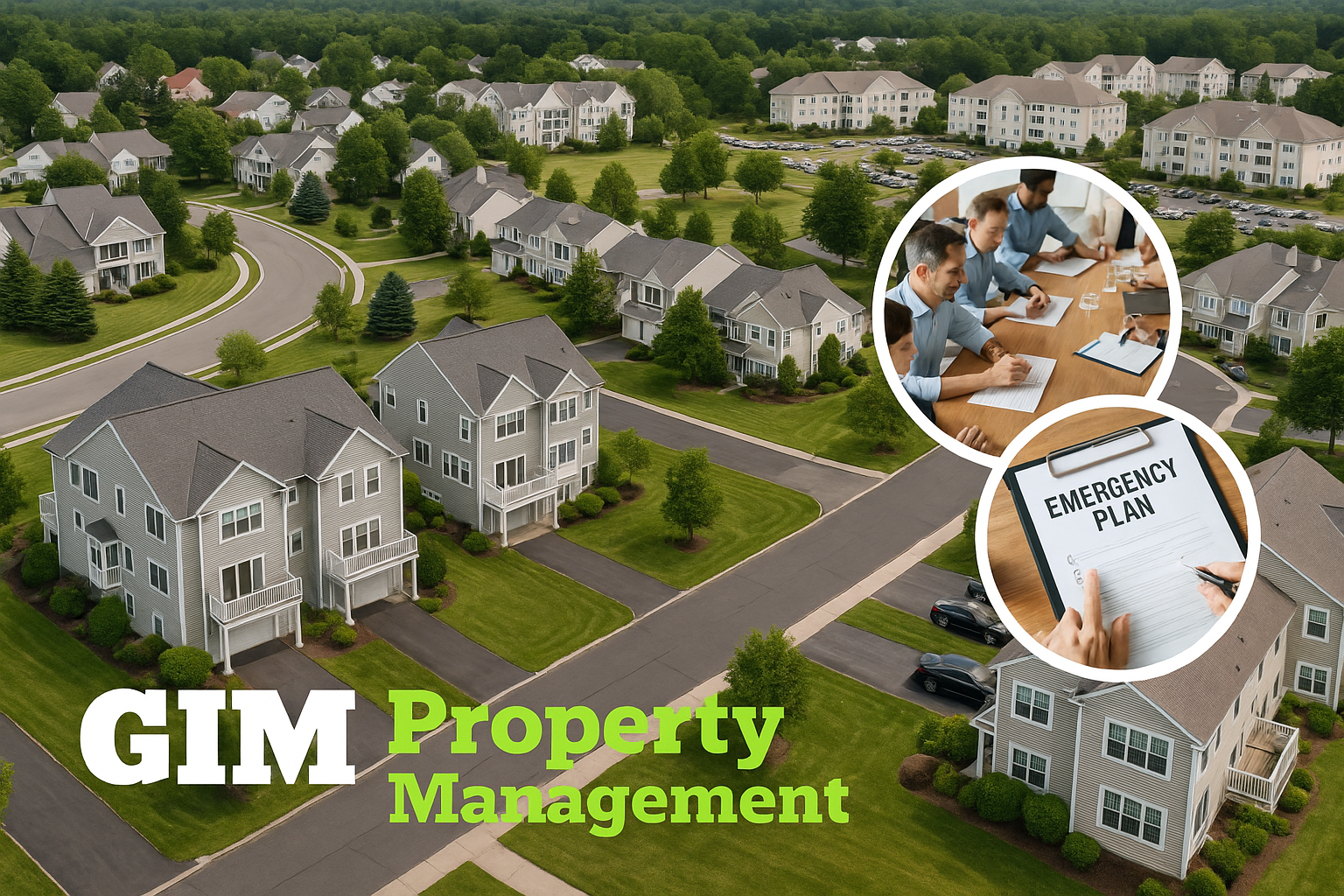Get Expert HOA Planning Advice
Discover how Massachusetts HOAs can effectively plan for emergencies to ensure community safety and maintain resident trust.

Discover how Massachusetts HOAs can effectively plan for emergencies to ensure community safety and maintain resident trust.

md
In the face of potential emergencies, Homeowners Associations (HOAs) must ensure they are well-prepared to protect their communities. Effective emergency response planning is not only crucial for safety but also for maintaining the trust of residents. Without a robust plan, an HOA may face significant challenges during a crisis, affecting both the community’s safety and the association’s reputation.
Is your HOA board ready to tackle emergency situations effectively? Understanding Emergency Response Planning is crucial for maintaining community safety and trust. How prepared is your HOA for unexpected emergencies, and what steps can you take to improve your current plan?
Emergency response planning for HOAs involves developing a coordinated approach to handle emergencies that might impact the community. This is critical for ensuring the safety of residents, minimizing damage, and restoring normalcy as quickly as possible. Massachusetts law requires HOAs to have a documented emergency response plan, emphasizing the importance of legal compliance and readiness.
Several key factors contribute to why this can be significant:
Massachusetts law mandates that HOAs maintain an up-to-date emergency response plan, which can affect liability and insurance rates.
Ensuring the safety of residents is paramount, with clear procedures minimizing panic and potential harm during emergencies.
A well-devised plan can significantly reduce the risk of structural damage during events like storms or fires.
Effective communication protocols ensure all residents are informed and updated, preventing misinformation during crises.
The presence of professional management can greatly enhance the effectiveness of emergency response plans. From ensuring compliance with Massachusetts regulations to coordinating response activities, management plays a critical role.
Professional management provides the expertise necessary to ensure an HOA is both compliant and well-prepared for emergencies.
Conduct a Cost-Benefit Analysis
Leverage Technology
Regular Training and Drills
Review Insurance Policies
Collaborate with Local Authorities
Encourage Community Involvement
Update Plans Annually
Utilize Grants and Funding
Implement Resource Sharing
Document Lessons Learned
Need Help Managing Your Budget or Strategy? At GIM Property Management, we specialize in guiding HOAs through the complexities of emergency response planning. Contact us today for expert assistance in creating a comprehensive and compliant plan.
Effective emergency response planning is essential for any HOA, balancing the costs of preparedness with the immense value of safety and trust. By implementing clear strategies, training, and communication protocols, HOAs can ensure they are ready to face emergencies head-on. Transparency and ongoing involvement of residents further enhance the plan's effectiveness, fostering a resilient community.
Contact GIM Property Management to request a consultation and enhance your HOA's emergency readiness today.
Contact us today to strengthen your HOA's emergency response plan and protect your community.
Contact Us